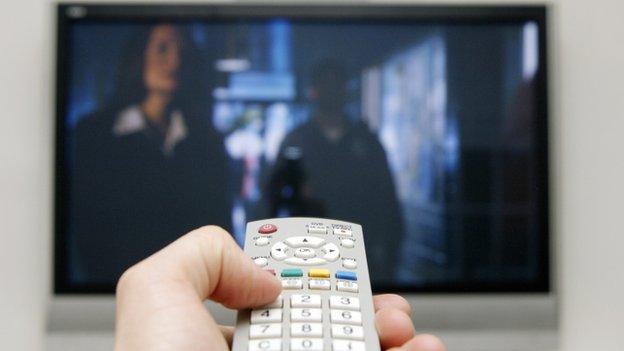BBC director general defends licence fee deal
- Published
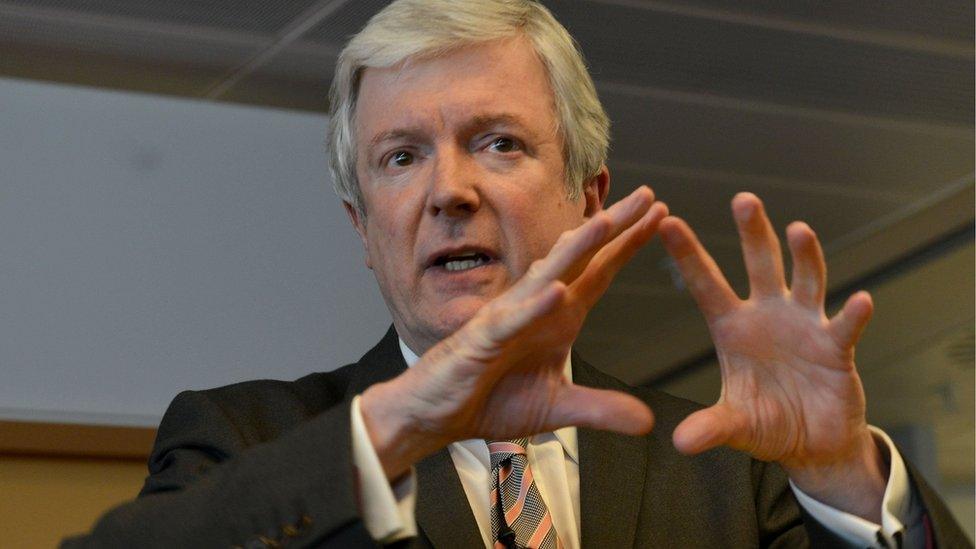
Lord Hall said he was first approached about taking on the cost of free licence fees last week
The BBC's director general has defended the corporation's decision to take on the cost of free TV licences for people over the age of 75.
"It gives us financial stability and the ability to plan for the future," Tony Hall told BBC Radio 4's Today.
He rejected comments by former culture secretary Ben Bradshaw that the deal effectively made the BBC "a branch of the department of work and pensions".
But he acknowledged misgivings over the process that led to the arrangement.
"There are issues to do with the independence of the BBC which will be examined at the charter review," said Lord Hall.
There has been criticism from the chair of the BBC Trust, Rona Fairhead, and former director general Lord Birt, that the deal was struck behind closed doors.
"We are disappointed that [the public] have not been given any say in the major decisions about the BBC's future funding," said Fairhead in an open letter, external to chancellor George Osborne.
Lord Birt said the government had set "a very dangerous precedent" by failing to consult the public, and suggested the BBC's independence had been compromised.
"I think the process should be looked at," Lord Hall told Today presenter John Humphrys, "This is the second time this has happened. It is the government's decision to come at it this way."
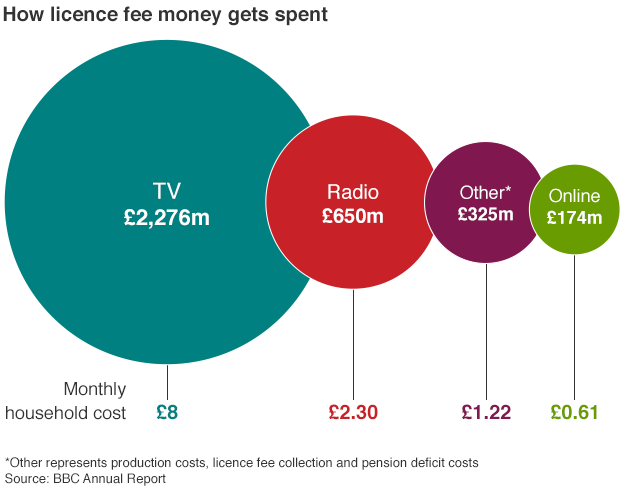
The new deal was unexpectedly announced in the House of Commons by culture secretary John Whittingdale on Monday, in response to an urgent question tabled by Labour MP Chris Bryant, following newspaper reports of the settlement.
In return for the BBC's agreement to shoulder the £650m cost of free TV licences, the government promised to allow the £145.50 fee to increase in line with inflation and close a loophole that made it possible to watch on-demand television without a licence.
Ministers said the move would be phased in from 2018-19. At the same time, the BBC's commitment to fund rural broadband will be decreased.
Lord Hall said "the government's decision has been more than matched by the deal coming back to the BBC."
But Mr Bryant, the shadow culture secretary, described the agreement as a "shabby little deal" and said Labour would oppose the government's plans if they amounted to a "smash and grab raid" on the BBC.
BBC funding
In 2013-14
£3.72bn
received from licence fee
-
BBC One's budget £1bn
-
Radio Four's budget £91m
-
Cost of free licence fees for over-75s £608m
Independent television producers also warned that further cuts to the BBC would threaten the UK's "entire creative sector".
Pact, the trade body representing independent companies, said a freeze or decrease in licence fee income would have a knock-on effect on other broadcasters.
"When we've looked at the numbers before, it is the BBC that is the real pillar of the public service broadcast system," said Pact chair Laura Mansfield.
"If you reduce the BBC spend, it has a mirror effect across the other broadcasters and you see not just a reduction of spending but you see a potential reduction of quality. We very much would want a limited reduction, and actually we've been campaigning for increase."
The National Union of Journalists said "the BBC leadership has caved in to government demands that will further weaken the BBC's ability to survive as a public service broadcaster of worldwide repute".
- Published6 July 2015
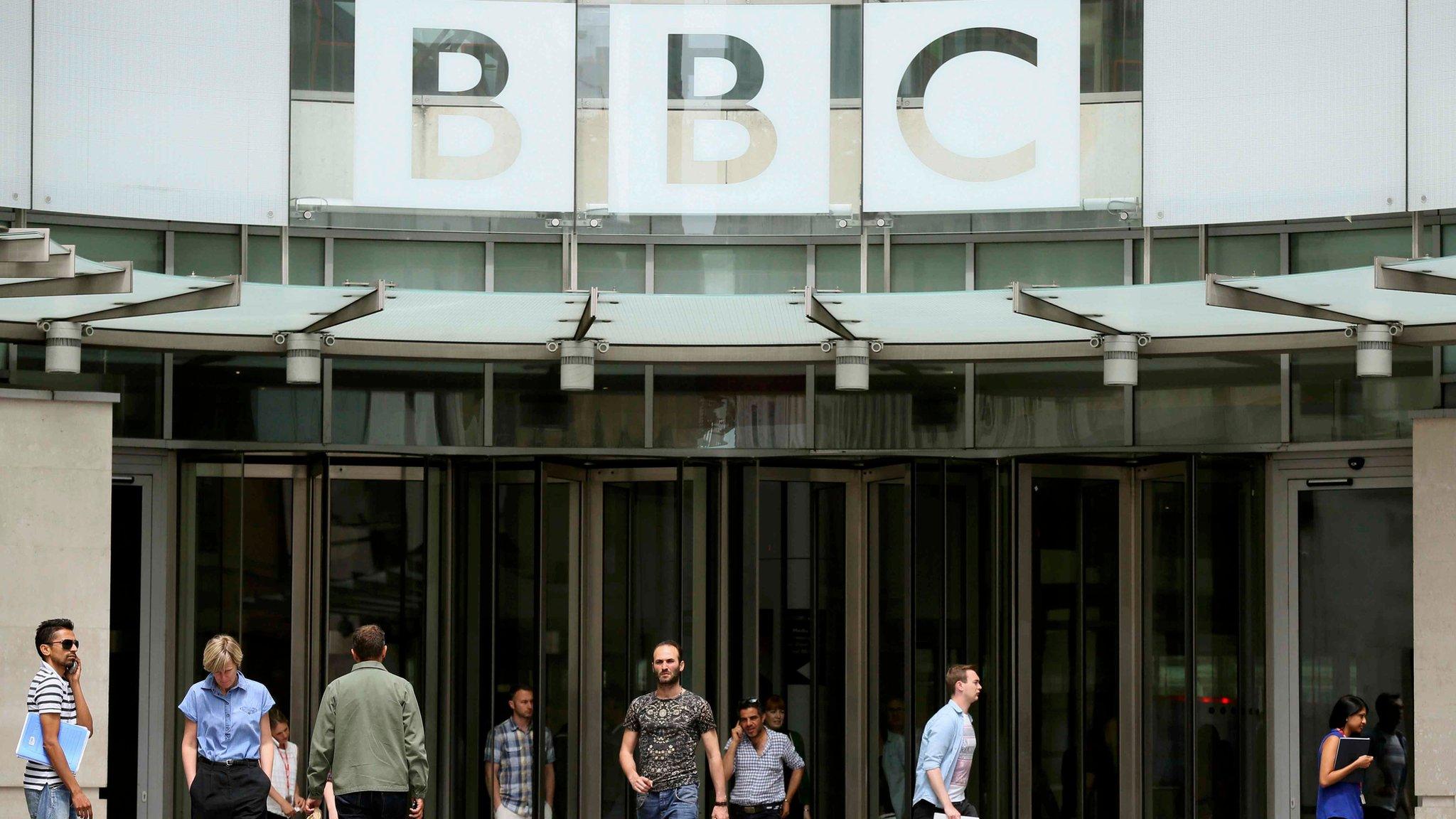
- Published6 July 2015
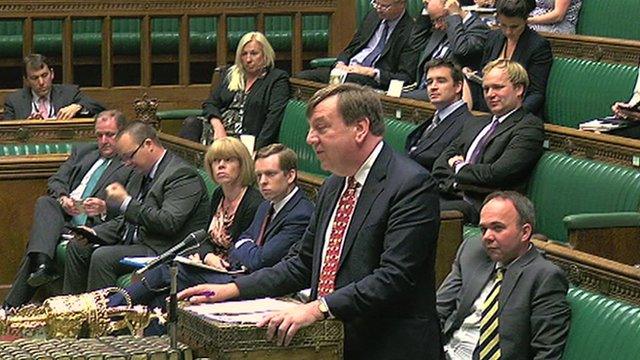
- Published6 July 2015
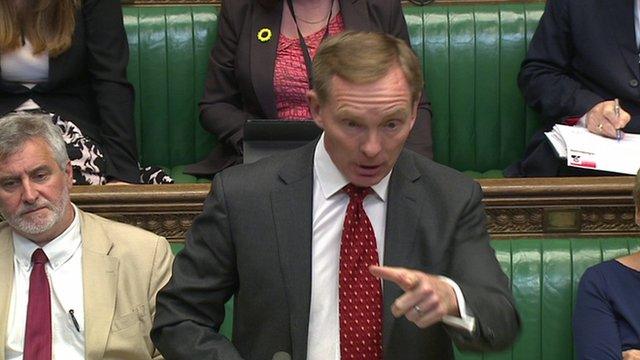
- Published5 July 2015
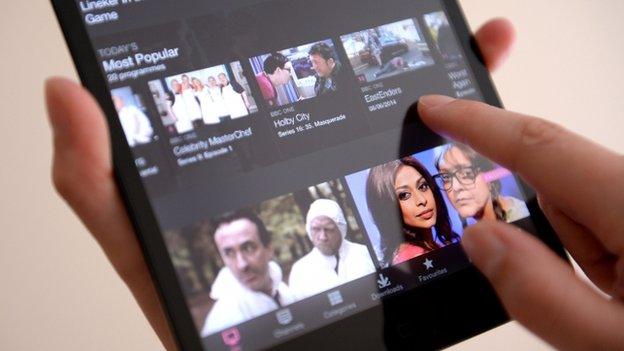
- Published5 July 2015
